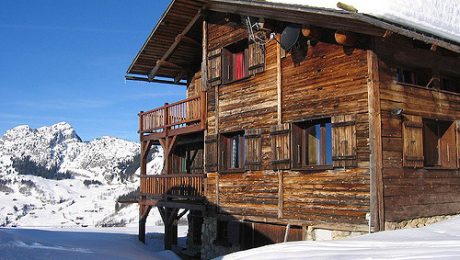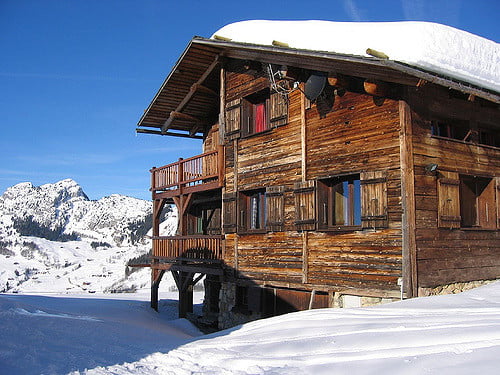Pros and Cons of Buying a Second Home
Real estate is most often a large investment. Having at least one property you own can reassure you that you will always have a roof over your head, as well as the flexibility to create the ideal home for yourself without having to worry about someone else’s contribution. However being able to branch out and buy a second property could also be very helpful, especially if you are lucky enough to have the money to make a deposit. There are certainly advantages to owning more than one property – but is it really worth it? Here are some pros and cons about it, and you can decide what works best for you.
Advantage: Additional Income
One of the main reasons why people will buy a second property is that they can rent it to someone else. This is a great way to pay off the mortgage and cover general maintenance costs, but you can also benefit if you estimate the rental price correctly. Whether you decide to hire full-time tenants or lease the property for vacationers, it can be a very lucrative endeavor. If you rent it to new tenants, talk to a real estate agency to help you advertise it.
Cons: Additional Liability
Renting your second property can certainly help improve your income, but with that comes extra responsibility as well. Before you go ahead with buying a new house to lease, make sure you consider all the duties you will have as a master. You will need to make sure the property is safe for any tenants or guests, and maintenance work such as fountain problems, electrical appliances, cleaning drains, problems with moisture, etc., will all be things you will need to organize and pay for as a landlord. You may also have to pay additional taxes on your second property.
Advantage: It is a Backup House for You
If you have tenants residing on the property, you will not be able to dispose of them without good reason or notice. However investing in a second home could provide a backup home for you if you want to leave your current property temporarily, or if you would like to help your relatives with a roof over their heads. Maybe you even plan to move into your second home when you retire. Whatever the reason, having a second home can be the perfect backup home for you if the occasion calls for it. You could even use it as your vacation home if you rent it to vacationers.
Cons: Distance
This only applies if your second home is a significant distance from where you currently live. The reason this is a problem is that it is difficult for you to look at a farm that is far away from you, and if your tenants living there ask for care help, it can be difficult. organize this remotely. If you are buying a second home, it may be worth looking at properties a little closer to home, so it is easier for you to manage it.
Owning a second home certainly has advantages, but it doesn’t come without its challenges. Consider the above points and consider whether owning more than one property is the right way for you.
For the latest updates, please stay connected to Feeta Blog – the top property blog in Pakistan.
Pros and Cons of Buying a Second Home
- Published in International, Real Estate, Real Estate Investments, second home, vacation home, vacation rental
5 Things to Consider When Buying Luxury Residence for Holidays
Property has long been considered among the best long-term investments available for Buying Luxury Residence. Although it can fluctuate like any other growth opportunity, it remains consistently among the best ways to make your money work for you.
Some prefer to invest in their local environment, while others have broad portfolios where returns may matter more than specific locations. However, it is worth considering luxury vacation rentals for those who are willing to provide active management through their portfolio.
It is a more practical investment opportunity than buying and renting a family home for obvious reasons. However, suppose you have the time to devote to management. In that case, you might discover a world of amazing returns, because people are basically willing to spend a lot more weeks in paradise than they would make their usual living.
If you’re considering investing in luxury real estate, here are our top five considerations to make before diving.
1. Size or Quality – Or the Best of Both?
When investing in real estate, many people prefer to go as big as they can afford. Although not always the case, more significant initial expenditure leads to much higher returns. Unless you choose a furnished property, the quality of housing, at least beyond the appliances and appliances, is less urgent. Long-term tenants often like to put their own stamp on a property, and they can be trusted to bring their vision of quality to life.
Holiday rentals differ in many ways, and no less than renters will arrive waiting for everything needed to enjoy their trip away. It is essential that the interior of the property screams “luxury” only from the photos.
Conversely, size is not necessarily that important. Even in the most luxurious places, many vacationers consider their accommodation as somewhere to sleep and a little more. A luxury apartment in Miami needs certain excellence to encourage people to travel. However, these regions have too much to offer to consider spending a holiday inland.
Ideally, you will be looking for balance, especially investing for the first time. Get too big, and you might get rid of a part of the rental market that doesn’t need all that space. Save on quality, and you may lose market share willingly to pay a premium for their housing.
2. Location
Some rental investors prefer to keep their portfolio within easy driving distance, often so that they can deal with issues inside their properties. Others are happy to leave the additional work to suppliers and individuals and have more opportunities to arrange investments vary and widely.
That remains a consideration for luxury investment real estate, but the priority is to find real estate with a growing holiday market. There are obvious candidates, like New York, Orlando and Las Vegas, but the concern for investors is that the holiday attraction often has a price already. If part of the investment strategy involves significant, recurring returns compared to the initial expenditure, this can be difficult.
Ideally, the best investment opportunities land somewhere that will likely support filling the property to capacity all year round, without being in one of the nation’s travel hotspots.
If you don’t require easy access to the property itself, it’s worth exploring upcoming locations instead of set up locations. Portland, Baltimore and Greenville are not yet necessarily crown jewels of the tourism economy. However, a gradual increase in demand can accelerate the overall value of the investment without paying an initial premium.
3. Evaluate the Numbers
A luxury holiday rental investment will have potential investors dreaming of idyllic places, exotic drinks and huge parties. However, it is a mistake to consider investing as nothing but raw numbers if the return is the priority.
The same rules that apply when choosing a long-term tenant property also apply here. Will the rent probably cover the mortgage and maintenance? How likely will the property increase in value over time compared to other areas?
Initial investors especially assume that there is little nuance to real estate investing; you buy somewhere, rent it and profit. However, without significant luck, this rarely happens. Renting real estate involves finding regular tenants, increased cleaning schedules, possibly frequent repairs, and more. A successful investment can pay off handsomely, but it requires diligence, and this should start with clean numbers.
4. Age and Maintenance
The older a property, the cheaper it is likely to be, which is likely to attract investors. Lower costs mean less risk and possibly greater leverage in return. However, a potential buyer looking for luxury housing to attract a high quality clientele needs to be clear about the minimum standards they expect.
The definition of “luxury” is evolving, and high-quality tenants often expect the newest and best of all, at least to a certain extent. What was top of the range ten years ago probably isn’t today, and what once marked housing as luxurious could now prove detrimental to attracting the right residents.
Again the facts and figures have to be decided. Lower initial investment due to age may require additional funding to improve it for the desired target market. Conversely, heavy investing from the start will almost guarantee a few years of luxury, but updates and revisions will have to be considered. Ongoing costs for maintenance should form part of the initial plan. Real estate where residents come and go and have no obligation to treat your investment as a home can easily bear higher maintenance costs.
5. Self-List or Property Manager
If you enjoy investing locally but currently do not live in a holiday destination, you may need to leave your comfort zone to make an investment.
Even if you’re happy to do everything yourself, there’s a lot more work to own and, more importantly, fill a vacation rental than a family home. As an owner, you are allowed to set the rules so you could ascertain minimum and maximum stay lengths, but this needs to make sense depending on your target market. Do it yourself, and you should be ready to become a part-time property manager on your own, so be sure to take that time into account in your returns.
The alternative is a professional real estate management service. Such a service will eat up profit margins on the investment and will affect the planning stages. However, a prudent choice can pay dividends, especially to leave the hardest part of the process, finding occupants, to someone else.
Naturally, the sky is the limit when it comes to managed investment real estate. This could extend to cleaning between rentals, repairs and maintenance, and everything else that keeps the apartment in the best condition. New investors should strongly consider this option, as it is easy to overlook the time investment that lies next to the financial one when you start diving.
For those who want to access the high-end rental market and may have some break themselves at a reduced cost, luxury rental makes perfect sense. Like any investment, it is important to make sure the numbers add up. It is equally essential to understand the need for sustainable investment as well, as management, maintenance and fees also play a role. There are amazing opportunities out there and a lot to consider when you invest in this way. Ultimately, relying on the numbers is important as this property becomes the ideal growth strategy.
Also, if you want to read more informative content about construction and real estate, keep following Feeta Blog, the best property blog in Pakistan.
5 Things to Consider When Buying Luxury Residence for Holidays
- Published in International, Miami, Real Estate, Real Estate Investments, vacation rental




